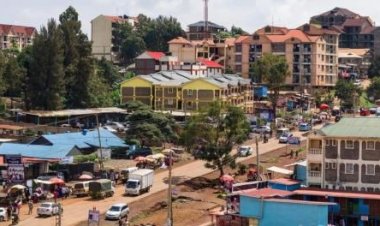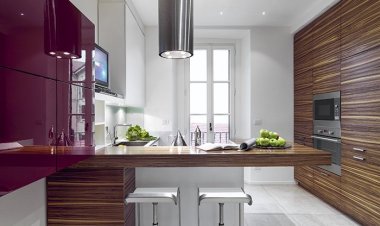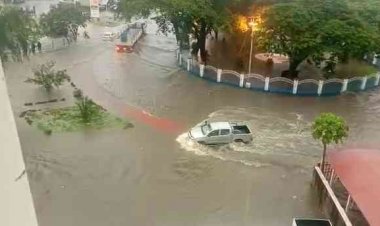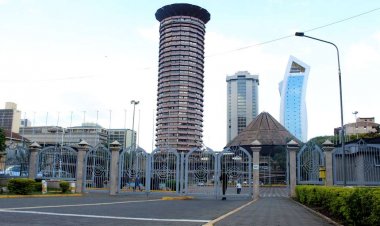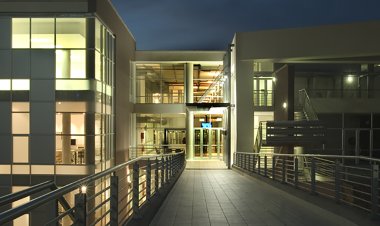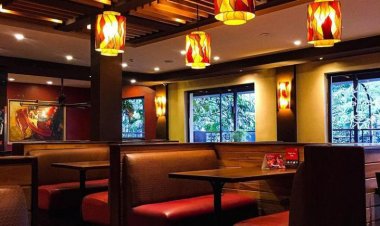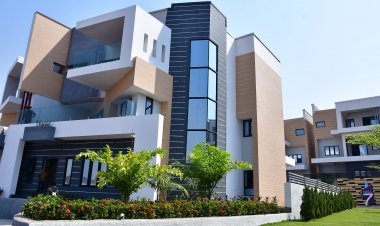The Beauty Behind AFCON 2023 Stadiums in Cote d'Ivoire
A country needs to have at least six well-built stadiums to host AFCON under which two must carry a maximum of 40,000 spectators.
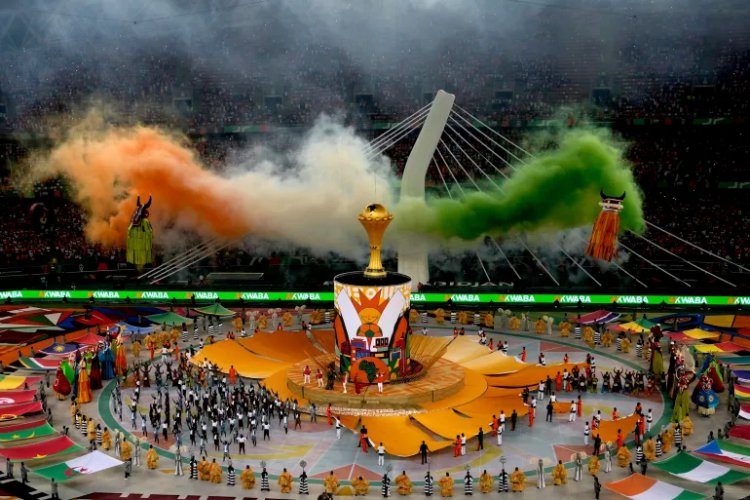
The much anticipated African Cup of Nations (AFCON) hosted by Ivory Coast also known as Cote d'Ivoire, began with much enthusiasm and eye-catching matches played in outstanding infrastructure stadiums. The event was scheduled to kick off in June 2023, but due to advice from the weatherman, it was carried forward to January 2024. The African Cup of Nations will be played in different stadiums across cities in Ivory Coast, including Abidjan, Yamoussoukro, Korhogo, San Pedro, and Bouake.
For a country to host the AFCON, it must be accredited by the Confederation of African Football (CAF), which is the body in charge of football in Africa. Its main mandate is to determine the host country of AFCON since countries must meet specific expected requirements before hosting the event. A country needs to have at least six well-built stadiums to host AFCON, of which two must carry a maximum of 40,000 spectators, another two can accommodate 20,000 spectators, and the remaining two must give access to at least 15,000 spectators.
The matches will be spectated and commented on from iconic and breathtaking stadiums such as:
Alassane Ouattara Stadium
This stadium is located between Ebimpe and Anyama. It was built and designed by the Beijing Institute of Architectural Design, which gave it a conspicuous architectural design. The stadium is popularly known as the Olympic Stadium of Ebimpe and, formerly, as the National Stadium of the Ivory Coast. It's the country's most popular stadium due to its large capacity, holding up to 60,000 spectators. This makes it not only one of the largest stadiums in West Africa but also the most modern stadium, consisting of several amenities such as an athletics track, auditorium, conference facilities, gyms, VIP facilities, plazas and parking space.
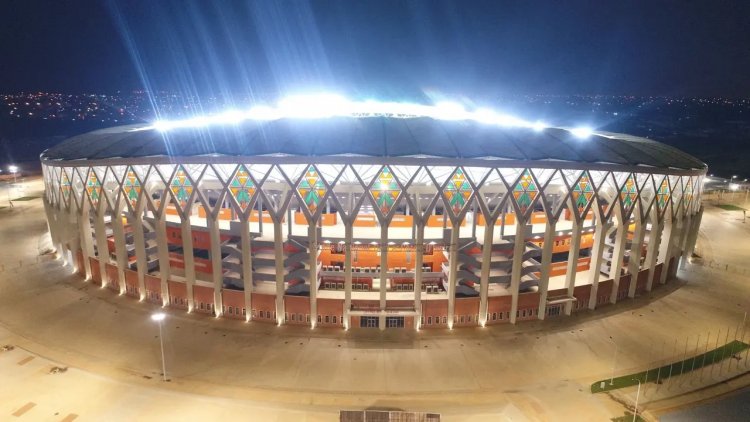
[File image of Alassane Ouattara Stadium. Photo/Courtesy]
Stade de la Paix
It was constructed specifically to host the Africa Cup of Nations in the late years of 1984. The stadium has been renovated and is ranked as the second largest stadium in Ivory Coast, carrying a maximum of up to 40,000 people, making it a multipurpose stadium in Bouke. State de la Paix has an athletic track surrounded by single-tier covered stands. The stands are fitted with comfortable seats painted in the colors of the country's national flag. From the outside, the stands are canopied with a colourful facade, surrounded by numerous parking spaces around the venue.
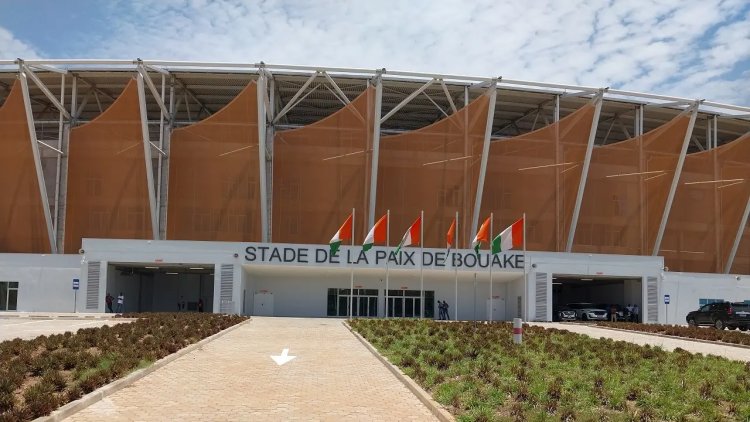
[File image of Stade de la Paix. Photo/Courtesy]
Felix Houphouet-Boigny Stadium
It is located in the CBD of Abidjan, initially known as Stade Geo Andre and has a bee hive population of up to 33,000. Historically, it is named after the country's first president, Felix Houphouet-Boignany. It is a multipurpose stadium that can host football, rugby union, and athletics. It is the former national stadium of the Ivory Coast national football team, and it has been renovated four times since its construction in 1952. The stands are fitted with plastic seats in the colors featured on the Ivory Coast national flag. The auditorium is covered by a strong white membrane roof fitted with photovoltaic panels, floodlights, and two video screens. A decorative facade structure surrounds the stands from the outside, making the stadium look significantly impressive.
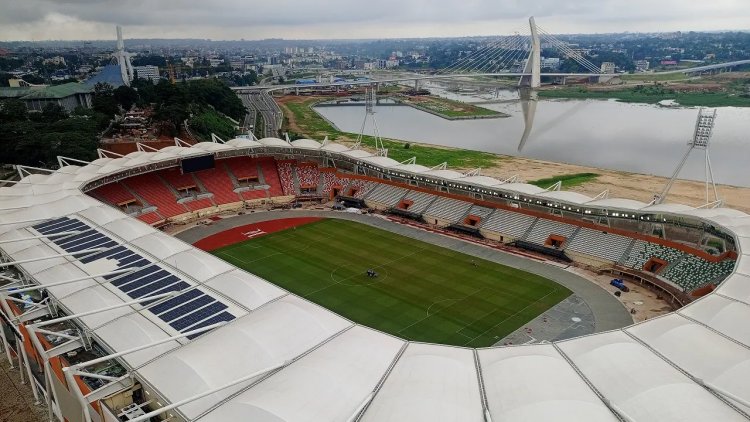
[File image of Felix Houphouet- Boigny Stadium. Photo/Courtesy]
Amadou Gon Coulibaly
Located in the suburb of Korhogo, it was constructed to cater to the needs of both football and rugby players. 20,000 people could fit in the stadium at the time. It was named after Amadou Gon Coulibaly, who was a Prime Minister in Cote d'Ivoire and served as the chief patron of the stadium. The stadium has a unique athletic track fitted with a modern roof, thus covering the stands. It's well-ventilated and fitted with plastic seats in the auditorium. Spectators who can't have a better view of the live action happening are catered for with two large video screens, while under the moon there are well-erected floodlights with a parking slot of two thousand plus vehicles.
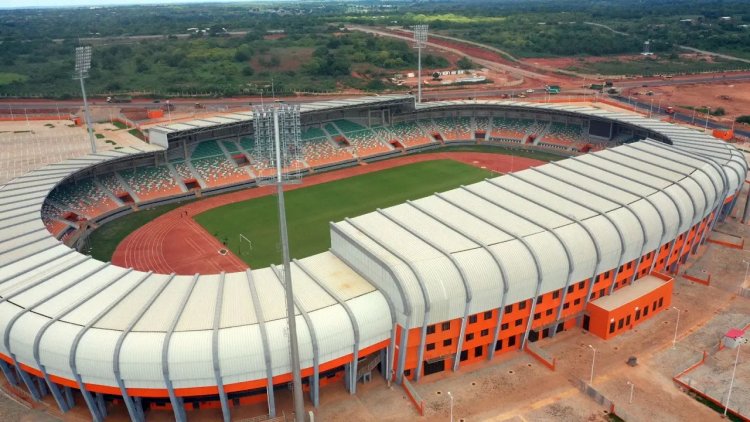
[File image of Amadou Gon Coulibaly. Photo/Courtesy]
Stade Charles Konan Banny Stadium
The newly set-up, state-of-the-art Charles Konan Banny Stadium has a maximum capacity of 20,000 fans. Positioned in the country's legal capital, Yamoussoukro, its construction is a result of Ivory Coast being selected to host the AFCON tournaments in 2021. Like all other stadiums, it has an athletic track revolutionized by stands of rings. It is fully equipped with various facilities, such as offices ready to serve you, changing rooms, a VIP section, and a place for the media. The seats in the stands are painted blue, while others are painted with the country's national flag colors. Additional provisions include two entrances, floodlights, and crystal-clear LED screens. With its large access, some space is left outside purposefully for parking.
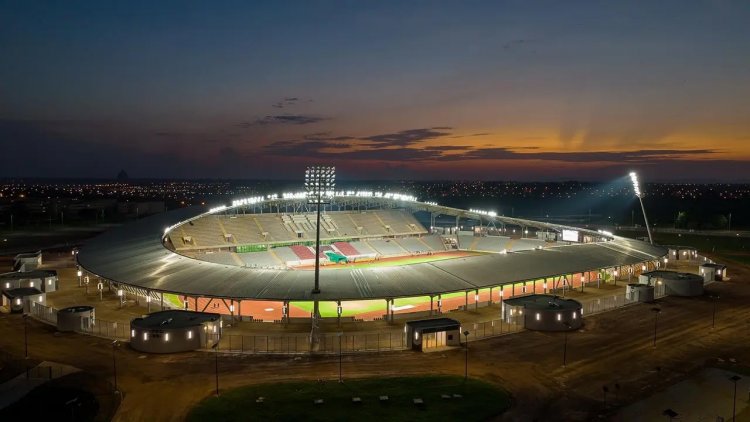
[File image of Stade Charles Konan Banny Stadium. Photo/Courtesy]
Stade Laurent Pokou
Located in San Pedro, it can host up to 20,000 fans. Its construction began in September 2018 and acquired its name from the famous Ivory Coast striker Laurent Pokou. It has a tartan athletic track and a natural turf pitch. It has two gaps on both sides of the stands, giving allowance for video screens. The two stands are equal in measurement, and one is specifically meant for VIP boxes and backup requirements. The seats in the stands are colored, bringing out the country's marvelous national flag. The arena outside is large enough to offer parking space, with floodlighting placed in the corners that light up a beautiful night vision.
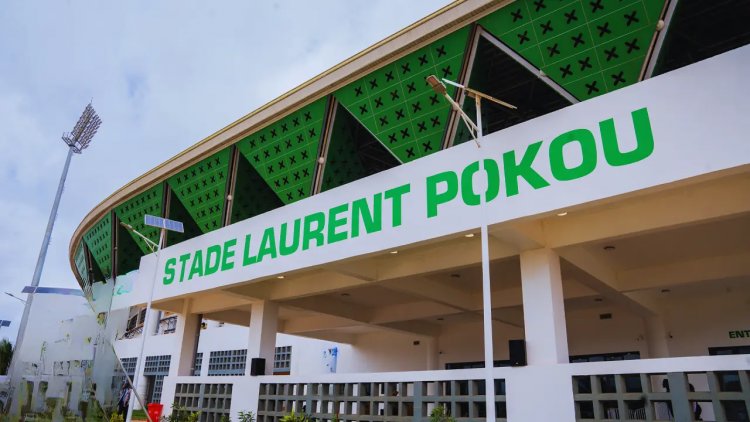
[File image of Stade Laurent Pokou. Photo/Courtesy]
Generally, 52 matches will be played in these six well-designed and designated stadiums, with the group stages having 36 matches for a total of six games per group. Those who qualify for the round of 16 will play eight games. In the quarterfinals, 4 games are anticipated, of which 2 games will determine who will play 1 game for the third runner-up and who will play 1 game at the finals to determine the winning team of the AFCON 2023/24 derby.
If you have a real estate press release or any other information that you would like featured on the African Real Estate Blog Post do reach out to us via email at [email protected]








